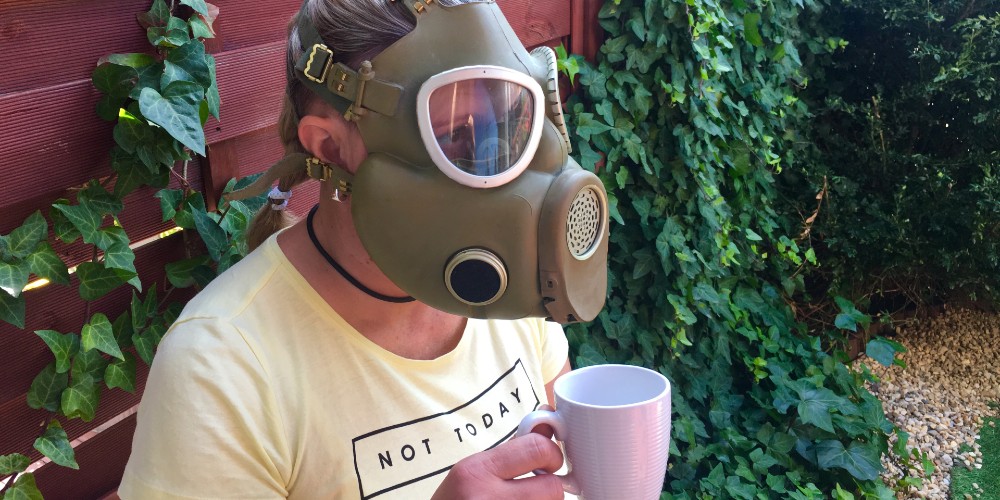Subscribe for free to the America First Report newsletter.
There has been a sharp rise in the number of Americans getting into “prepping.” I’m a late prepper myself, having only really begun making the necessary changes in my life over the past year or so. But whether you’re an experienced prepper, new to the game, or just interested in making some changes due to all of the crazy things happening in America and across the globe, here are ten things you should be preparing for now.
Watch or listen to today’s episode of The JD Rucker Show on Brighteon, Rumble, Bitchute, or Apple Podcasts.
1. Assess YOUR Situation and Be Honest
The first rule of prepping is to make a plan. Then, share the plan with everyone involved. Practice the necessary parts of the plan. That’s prepping 101.
But no matter what any experts tell you, the most important part of making a plan is assessing YOUR situation. Only you and your family know what assets you have, what risks are around you, and what might happen if things start going south in a hurry.
If there’s an economic collapse, do you have money in different forms available in your home? What if the internet goes down? If you live in a city, do you expect there to be riots? Are your own neighbors trustworthy? If you job starts mandating new vaccines, do you know how to respond? Will you take them? Do you have ways to secure revenue or live off savings if your employers get draconian?
How will you communicate with loved ones in a societal collapse? Should you consider moving out of the city (yes)? Assessing your situation will determine how you handle the rest of the list, what applies, and what you’ve already got covered.
2. Stock Up on Guns and Ammunition
Leftists have been coming after our guns for a long time, but never in American history have they been closer to actually achieving their goals. Unfortunately, more and more Republicans are joining Democrats in adding “incremental” restrictions to firearm ownership in America.
It is going to get harder and harder to acquire firearms and ammunition in the future. The way they see it, they have two-and-a-half years to cripple gun owners in America. And if you think a “red wave” in November is going to fix things, think again. Both possible Senate Majority Leader Mitch McConnell and possible Speaker of the House Kevin McCarthy have expressed interest in some degrees of gun control.
Even if they don’t go into full gun-confiscation mode, they’re at least going to try to raise taxes on guns and ammunition exponentially. Local and state governments are already in the process of doing so. The bottom line is this: Firearms and ammunition are not going to be cheaper or more accessible than they are right now. Get them while you can. This is why we picked up our first-ever firearms sponsor.
3. Practice Energy Frugality and Acquire Alternative Energy Sources
We’ve seen what’s been happening with gas prices. That’s just the beginning. This manufactured energy crisis is expanding to electricity, natural gas, propane, and diesel. Rolling blackouts and massive price increases are already getting started.
There was a time when I didn’t see a point in being super-frugal about energy. My father-in-law used to keep all lights off in his house until the sun was completely down and you couldn’t see anything without lights on. Then, he would make sure any room that wasn’t being used had lights off. He’d even turn off his television to get up and use the restroom.
I thought it was silly. I did the math and came to the conclusion a light on all day and night for a month wasn’t much of a change in the electric bill. Today, I’ve taken the opposite approach and adopted my father-in-law’s advice. It isn’t just about saving on bills. It’s about preparing for energy scarcity, something most in this nation have never experienced for long periods of time.
It’s also a best practice to acquire alternative energy production methods such as solar generators. I wish I could make a recommendation here, but after trying out three different solar generators and solar panels, I’m not impressed. Granted, I went cheap on the ones I tried, so I may have to save up and try out the more expensive ones.
Do your research and get solar, wind, or whatever type of personal energy systems you can acquire in case the grid goes down.
4. Stock Up on Food, Especially Proteins
There have been times in the recent past that I’ve talked about beans and rice. The combo forms a proper protein. They’re cheap and available. It made sense to recommend them.
While I’m not going to tell anyone not to stock up on beans and rice, they’re no longer a priority. Their prices haven’t gone up as much as other foods and their availability for now appears normal. Proteins, on the other hand, seem to be fading in availability and rising in price. That’s why I’m now pushing people toward getting as many storable meats as possible.
For any long-term storage foods, proteins or not, we have three sponsors who offer a wide variety of options. Get stocked up as soon as possible. Food is not going to be cheaper in the near future. The only proteins they may offer at some point down the line could be bugs. I won’t be eating bugs.
5. Backup Your Files and Start Storing Important Docs Locally
Way back when, it was a best practice to backup files on floppy disks or external drives. Today, many if not most people have everything in the “cloud” with either copies on their local computer or not at all. This is risky, especially for important documents, because we are one cyberattack or digital collapse away from not having access to the internet for extended periods of time.
A 5-terabyte hard drive on Newegg is around $100. That’s enough space for most Americans to save all their files and even store some movies, shows, documentaries, or whatever digital entertainment or education you may need if the internet crashes.
6. Secure Alternative Meds and Other Medical Supplies
This may be the most challenging prep for many people. Some are dependent on the healthcare system in America staying intact. In a societal collapse, it may be difficult to get the treatments or medications we need.
One thing people can do is search for alternative available treatments, supplements, or natural remedies. It’s not going to work for everything, but we have to do what we can to stay as healthy as possible.
Eyecare and other specific needs that can be stocked up on should be considered. I’m blind without corrective lenses. I now have two pairs of glasses (and will get a couple more when the cash is available) as well as a year’s supply of contact lenses.
Antibiotics may be challenging to acquire in a crap-hits-the-fan situation. I can imagine a near-future scenario when all such prescriptions are only available to those who get the upcoming Omicron-specific jabs. This is why we just picked up a sponsor who offers emergency cases of five antibiotics available through telehealth. It’s easy and designed to last through societal challenges.
7. Prepare for Worse Lockdowns Than Before
Remember two weeks to slow the spread? That lasted two years and required a ton of protests to get them to finally reverse their ineffective policies. What will happen when Pandemic Panic Theater 2.0 and 3.0 hit? Whether it’s BA.5, Monkeypox, Hemorrhagic Fever, or something else, we believe they’re going to hit us with something in the near future, possibly before the midterms.
It behooves us to have enough supplies to wait out the lockdowns, even as we protest them. For some, that might mean two-weeks worth of supplies. Or two-months. Or even two-years.
The reason we want supplies for a lockdown is because I anticipate they will force people who aren’t prepared to jump through hoops. Again, that could be a new jab. It could be adherence to certain policies. If you don’t think something as draconian as a social credit score could never come to the United States, you probably also thought that a disease with a 99.93% recovery rate for healthy people under 50 would never be used to destroy the economy in the United States.
8. Assume the Dollar’s Demise and Plan Accordingly
Diversify and keep your money close. Those are the best practices here. We’re in a recession. Inflation is still skyrocketing. The U.S. Dollar is being attacked by forces in and out of America. It’s not time to be sitting around with all your money in the bank or stock markets.
Many of us have a lot of our financial resources online. What will we do if we don’t have access to it? Having money in multiple forms available at home is smart today and pretty much any time going forward.
Gold and silver are obviously investments I recommend. We have a couple of precious metals sponsors we work with to supply readers and listeners with physical gold and silver. Whether to secure wealth or protect your retirement, it is a good idea to put a good percentage into physical precious metals delivered to your home and/or gold and silver IRAs.
9. Make Friends and Family Aware of Challenges Ahead
One of the things most preppers recommend that I disagree with is keeping your preps secret. No, I’m not saying we should broadcast the fact that we’re prepping to everyone in the neighborhood. But it’s the right thing to do to tell friends and family that you’re prepping, why you are, and why they should be as well.
It’s not all about being a good brother or sister. It’s about building a localized network of people who are better prepared than most. There will be those who work in networks to rob those who have prepared. It makes sense to make a counter-network among your friends and family. Also, refer back to recommendation #2 on this list.
10. Learn and Share the Gospel
I’m not going to get preachy. I’ll leave it by saying if you do only one of these ten things, this is it. Food and water are important. Your soul is infinitely more so.
We are told to share the truth, bringing the Gospel to the nations. For us as individuals, that means sharing it with those who will listen. Read your Bible and pray. Whether society crumbles or not, the most important thing you can ever do is embrace the Gospel and spread it to others.
Image via Shutterstock.
What Would You Do If Pharmacies Couldn’t Provide You With Crucial Medications or Antibiotics?
The medication supply chain from China and India is more fragile than ever since Covid. The US is not equipped to handle our pharmaceutical needs. We’ve already seen shortages with antibiotics and other medications in recent months and pharmaceutical challenges are becoming more frequent today.
Our partners at Jase Medical offer a simple solution for Americans to be prepared in case things go south. Their “Jase Case” gives Americans emergency antibiotics they can store away while their “Jase Daily” offers a wide array of prescription drugs to treat the ailments most common to Americans.
They do this through a process that embraces medical freedom. Their secure online form allows board-certified physicians to prescribe the needed drugs. They are then delivered directly to the customer from their pharmacy network. The physicians are available to answer treatment related questions.

















